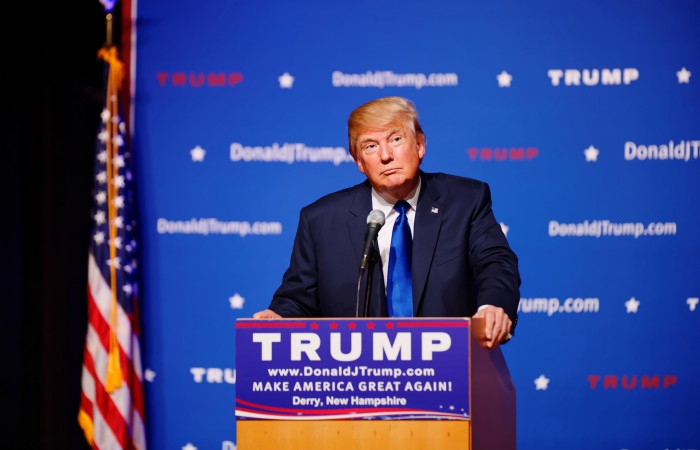
Trump knows the story his audience craves
By Dan McDonough, Jr.
I believe Donald Trump — or at least his political handlers — is a lot smarter than many folks will accept. Despite the chorus of media dissent from left and right, Trump has all but locked in the Republican nomination for president. Nearly no one would have predicted this even just nine months ago.
How did he do it?
In the aftermath of whatever comes next, there will be plenty of pundits to declare what ended up being Trump’s, well, trump card. But even today we can level this diagnosis: He connected with the voters that mattered. Trump told a story that resonated with the audience he needed. And, if he can do it again come the general election, he’ll be the 45th President of the United States of America.
If delivering the right story to the right audience can get Donald Trump this close to the White House, imagine what it can do for you.
In business, it’s called “customer development” and it’s the science of establishing a market that is willing to buy the thing you’re building, according to the folks at First Round Capital. The challenge isn’t so much developing the technical workings of your product or service as much as it is whether you can convince somebody to care enough to buy. To achieve that requires a lot of listening to what ails the prospect, and then develop a message about what you have to offer that speaks to those ailments in the form of a cure.
For this year’s presidential election, the message that’s clearly resonating is the concept of America-first leadership. And, as Ed Lynes explained on the Woden blog earlier this year, Trump’s message follows the science of compelling storytelling:
The most effective messaging creates a narrative arc, as in a story. Narratives are driven forward by their hero, and that’s where Jeb misses the mark. Jeb’s campaign sees him as the hero — “Jeb can fix it” is all about Jeb. It’s a selfish implication: that people are not able to fix things themselves, and need him to do it instead.
Great storytelling makes a hero out of their audience. Jeb needs a message that makes each individual voter a hero in the American story. “Make America great again” works not because Donald Trump is a great person, but because it implies that the audience will be the source of said greatness (plus it’s already worked once). Trump’s bombastic, but he’s made himself a catalyst for voters’ own desires. Casting a vote needs to feel empowering; Jeb implies it will be surrendering.
What’s most unnerving to the political establishment and the media is how Trump is able to garner so much support while still offering very little in terms of policies and positions. In the business world, we call that features and benefits. And, throughout humanity, features and benefits — or policies and positions — have played second fiddle at best to compelling narratives of things like… Hope.
First Round Capital’s blog about human behavior hacks puts it this way:
People are unpredictable. And they are animals.
These two tenets are often overlooked by startups trying to appeal to customers based on rational assumptions. Remember, people buy expensive wine they know nothing about. They place value on what their peers value whether they want it or not. They won’t shell out $2 for a useful app, but will take a $30 cab ride to get to work. And this behavior is only intensifying as more options become available faster.
In this environment, companies can’t rely on customers to make straightforward decisions based on clear triggers. And they can’t rely on themselves to understand what will motivate people to buy, download, and use their products. To fix this, they need to dig a level deeper, into territory most aptly defined as “behavioral economics.”
Reasonable, educated people will buy expensive wine they know nothing about simply because the purchase will make them feel good about themselves and how it projects their image to others. Why, then, would anybody expect they wouldn’t vote for a candidate that does the same thing, no matter the “cost” to the country?
Trump has executed an end run around the GOP machine. And he just may well do it around the entire political machine in Washington. He’s “disrupted” the system just like any great startup has done. He’s doing it by being fanatical about listening to his prospective “users” and telling them the story that gives them the confidence to choose him. It’s a lesson to every business owner and leader of any non-profit or cause. As the team at Remind.com likes to say, “True customer obsession is not when you can’t stop talking about your users. It’s when you don’t stop hearing about them in your organization.”
Stop listing your features and benefits, and start telling your story — the story that your audience is craving — and you, too, can disrupt the machine of whatever industry you choose.
Dan McDonough, who has disrupted both the media industry and the telecom industry, is a founding partner at Woden. Whatever your storytelling needs may be, let Woden help. Download our free StoryBlueprint, or send us an email at connect@wodenworks.com to discuss how we can help tell your story.


